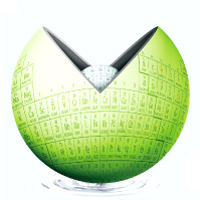
Published for geochemistry community from Geochemical Society of Japan.
Geochronology of alkali volcanism in Oki-Dogo Island, Southwest Japan: Geochemical evolution of basalts related to the opening of the Japan Sea
Geochemical Journal, Vol. 28, No. 6, P. 431-449, 1994
ABSTRACT
Geochronological and geochemical studies were performed on alkali volcanic rocks from Oki-Dogo Island, locating about 60 km off the coast of Southwest Japan inside the Japan Sea. There are big differences both in age and in geochemistry between the oldest alkali rocks and the younger rocks; the former having significant Nb and Ta-deletion and Ba and K2O-enrichment erupted at 19–18 Ma when the opening of the Japan Sea was ongoing, while the latter with no Ta-depletion were active between 5.5–0.6 Ma considerably after the cessation of the rifting activity. Syn-extensional rocks should not have erupted in the active subduction zone but are probably originated from or at least contaminated by the lithosphere beneath the early Proterozoic crust. The lithosphere is considered to have suffered mantle metasomatism to form phlogopite selectively enriched in Ba and K2O by fluids, which had been released from previous subductions at the Asian continental margin. Partial meting of such lithospheric mantle during the active rifting was essential for the generation of Ba and K2O-enriched alkali basalt magmas. The younger basaltic rocks are probably originated either from the asthenosphere or the deeper plume mantle. A suite of volcanic rocks from mugearite through trachyte to alkali rhyolite gave concordant ages of 5.5–5.4 Ma. These ages suggest that a previously reported Rb-Sr whole rock age of 6.8 ± 0.3 Ma does not represent the age of eruption and is probably disturbed by magma mixing between basic and acidic end members.- Published : 1994-12-20
- Released on J-STAGE : -
- Received : 1993/07/24
- Accepted : 1994/09/13
- DOI : https://doi.org/10.2343/geochemj.28.431
- J-STAGE URL : https://www.jstage.jst.go.jp/article/geochemj1966/28/6/28_6_431/_article/-char/ja
- J-Online ISSN: 1880-5973
- Print ISSN : 0016-7002
- ISSN-L : 0016-7002
All Issues
- Vol.59, 2025
- Vol.58, 2024
- Vol.57, 2023
- Vol.56, 2022
- Vol.55, 2021
- Vol.54, 2020
- Vol.53, 2019
- Vol.52, 2018
- Vol.51, 2017
- Vol.50, 2016
- Vol.49, 2015
- Vol.48, 2014
- Vol.47, 2013
- Vol.46, 2012
- Vol.45, 2011
- Vol.44, 2010
- Vol.43, 2009
- Vol.42, 2008
- Vol.41, 2007
- Vol.40, 2006
- Vol.39, 2005
- Vol.38, 2004
- Vol.37, 2003
- Vol.36, 2002
- Vol.35, 2001
- Vol.34, 2000
- Vol.33, 1999
- Vol.32, 1998
- Vol.31, 1997
- Vol.30, 1996
- Vol.29, 1995
- Vol.28, 1994
- Vol.27, 1993
- Vol.26, 1992
- Vol.25, 1991
- Vol.24, 1990
- Vol.23, 1989
- Vol.22, 1988
- Vol.21, 1987
- Vol.20, 1986
- Vol.19, 1985-1986
- Vol.18, 1984
- Vol.17, 1983
- Vol.16, 1982
- Vol.15, 1981
- Vol.14, 1980
- Vol.13, 1979
- Vol.12, 1978
- Vol.11, 1977
- Vol.10, 1976
- Vol.9, 1975
- Vol.8, 1974
- Vol.7, 1973
- Vol.6, 1972-1973
- Vol.5, 1971
- Vol.4, 1970-1971
- Vol.3, 1969-1970
- Vol.2, 1968
- Vol.1, 1966-1967
Current Issue:
Stats:
Impact Factor: 1.6 (2024)
Submission to final decision: 9.6 weeks (2022)




